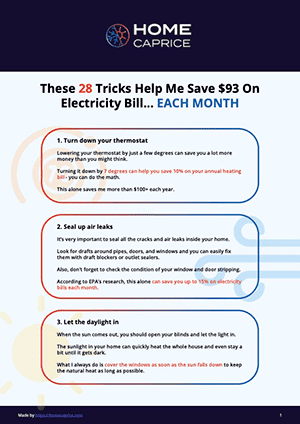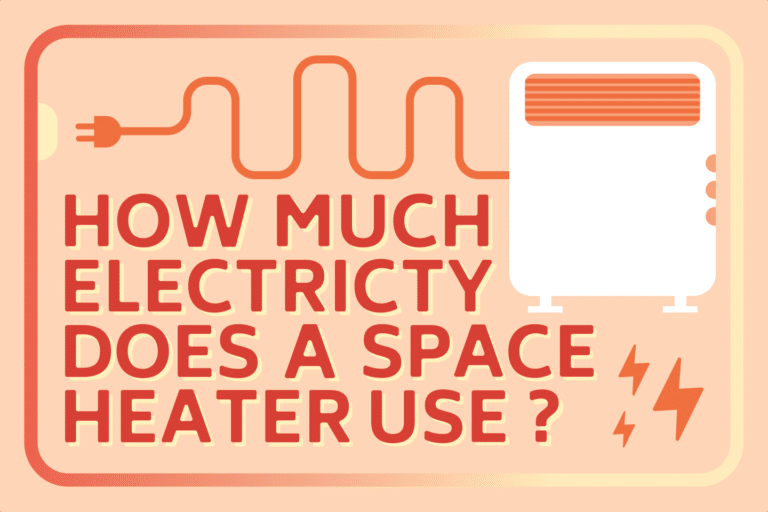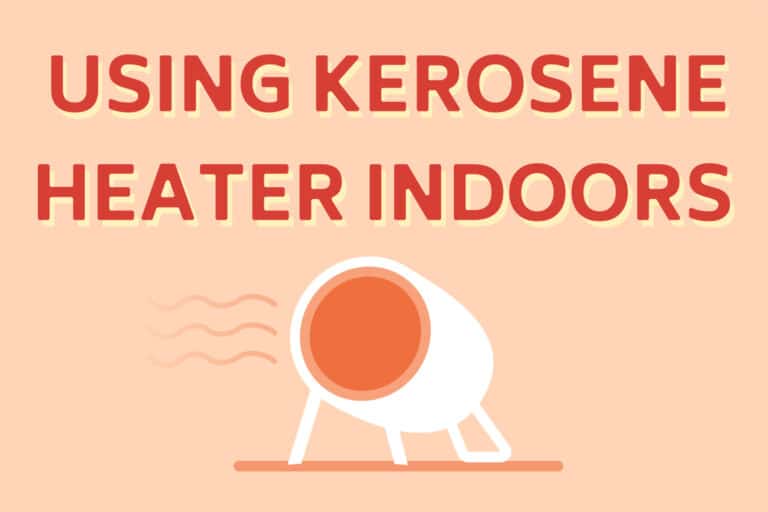Propane heaters are a great solution when the power goes out, and you can always use it as your backup heating option.
However, you might wonder if they’re safe to use indoors.
Some people think they’re dangerous, but if used correctly – they’re perfectly safe.
I have over five years of experience dealing with propane heaters, and I’ve prepared a couple of safety tips for you, but first, let’s talk about the overall safety of propane heaters.
Can You Use A Propane Heater Indoors?
This is the question I get asked a lot.
The short answer is – yes if used correctly.
Regarding propane heaters, there are two types – indoor and outdoor models.
You’re all set for a warm and safe experience if you’ve already bought an indoor model.
On the other hand, if you’ve bought an outdoor model, you should ensure the room has plenty of ventilation. I always recommend getting a carbon monoxide detector for peace of mind at night.
I’ll cover more differences between these two models, but let’s keep you safe now with some helpful tips.
Propane Heater Safety Tips
1. Install a carbon monoxide detector (CO)
If I wanted you to remember just one tip from the whole list, this would be it.
I can’t describe how important it is to install a carbon monoxide detector in your home.
They’re affordable and can save your life because they notify you if CO levels rise.
Amazingly, such a small device can be so important sometimes.
2. Leave a window open
Although you might think it’s crazy to open your window when heating your room, you should leave it open for just a few inches.
In this way, you won’t cool the room, and it will be enough for the room to ventilate.
The process is similar to garage heaters because garages can easily be ventilated.
By doing this, you’ll be able to heat your house with a propane heater for longer safely.
It keeps you warmer in the long run.
3. Tip-over safety switch
One of the most significant risks of propane heaters is the chance of tipping over.
It could cause fire easily and cause a dangerous situation. A lot of propane heaters already have built-in tip-over safety switches.
What it does is it automatically turns off the heater if it isn’t standing solely on the base.
This adds an extra layer of security to your home.
If you’re looking for a propane heater with this and other advanced features, you should look at Mr. Heater F232000.
4. Check for leaks
You should regularly maintain your heater and check for any type of leaks.
The first thing you should do is clean it once a month to keep it dust-free.
Next, look overall at all connections, hoses, cracks, and anything else that can cause gas to escape.
Helpful trick: Use soapy water to wipe over all the parts of the heater, then turn the heater on and check where the water will start to bubble.
5. Don’t use your heater often
This might sound awkward, but you should use the heater only when necessary.
This helps you to air out all the CO in the room, save more propane, and help you fall asleep stress-free.
6. Turn off if you smell anything suspicious
While carbon monoxide is odorless, propane has a certain smell that sticks in your nose.
If you smell anything suspicious, you should immediately turn off the heater completely.
Although you might be overreacting, it’s always better to prioritize safety.
7. Don’t use any flammable spray
When the propane heater is running, you should never use flammable spray. This could be deodorant, hair spray, fragrance, or anything else that could be flammable.
You should either go to a different room or turn off your heater and air out the room before using these sprays.
You would be surprised at how often something as simple as this can cause a fire.
![Can You Use Propane Heater Indoors and Is It SAFE? [7 Working Tips] Use Propane Heater Indoors](https://homecaprice.com/wp-content/uploads/2022/11/newsletter..png)
Download this FREE cheat sheet to find 28 tricks that can help you save on your electricity and heating bill each month.
Click here to get a FREE Cheat-SheatDifferences Between Indoor & Outdoor Propane Heaters
The main difference between indoor and outdoor propane heaters is that they handle the smoke completely differently.
How they handle the smoke has much to do with the risk of causing a fire.
For example, outdoor propane heaters usually distribute more propane, which can easily cause a fire.
Conversely, indoor propane heaters are made especially for indoor use, so you can expect them to be less powerful and efficient.
I highly recommend that you check if your heater is made for indoor or outdoor use. If it’s made for outdoor use, the safest tip I can give you is to look for a new propane heater.
Also, you should look at an in-depth guide about propane heaters, where you’ll learn many more tips to help you stay safe and make the right buying choice.


Download this FREE cheat sheet to find 28 tricks that can help you save on your electricity and heating bill each month.
Click here to get a FREE Cheat-Sheat![Can You Use Propane Heater Indoors and Is It SAFE? [7 Working Tips] Space Heater](https://homecaprice.com/wp-content/uploads/2020/03/heater-60.png)
![Can You Use Propane Heater Indoors and Is It SAFE? [7 Working Tips] Mr. Heater F232000](https://homecaprice.com/wp-content/uploads/2023/07/815WaLhLVcL._AC_SY450_.webp)


![Why Is My Heater Blowing Cold Air? [7 Reasons]](https://homecaprice.com/wp-content/uploads/heater-is-blowing-cold-air-768x512.png)